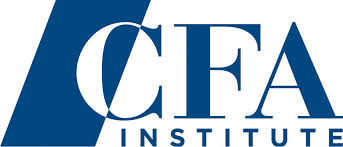
Jide, ex-KPMG, ex-Vetiva, ex-Renaissance Capital, is the Sub Saharan African Markets Risk & Financial Services Leader of Talentstone Africa Partners. He’s a 2005 graduate of Obafemi Awolowo University, Ile Ife, Nigeria.
Thousands of people around the world take the CFA exams. CFA released June 2015 Level 1 and 2 results late July. History suggests that candidates don’t do well: in June 2014 the average pass rate across all three levels was 46% and the pass rate for level I in the recently released CFA Level 1 was just 42%.
So, what does it take to pass the notoriously difficult CFA Level I exam? The CFA Institute, which runs the entire process, is notoriously coy when it comes to explaining what constitutes a pass and what doesn’t. In order to pass, candidates need to meet the minimum ‘net passing score’ across all topic areas. But the minimum net passing score is never given and varies year-on-year according to how hard the paper was and how well everyone does. All that we know for sure is that the Institute uses something known as the ‘Angoff Standard Setting Method’ (explained here) to determine the pass rate. This has something to do with a set of CFA Charterholders sitting down and working out how difficult the questions really are and how easy it ought to be to pass.
To confuse matters further, because the marks allocated to different topics vary, the Institute says that strong performance in one topic won’t necessarily compensate for weak performance in another.
As a result, the 50%+ of people who regularly fail the CFA Level I exam are usually confused as to why. All they can do is to sit the exam all over again and hope it works out better next time.
Being inclined to control-freakery, the CFA Institute doesn’t much like people discussing their CFA score. However, this doesn’t dissuade them from doing so. Online CFA discussion boards like Analyst Forum contain various scores from people whose results have surprised them.
June 2015’s CFA Level I exam was said to by candidates to be unusually easy. This might be why – despite the CFA Institute’s efforts to adjust passing scores for the exam’s difficulty – a mere 42% of people passed. To see a selection of December 2014 CFA I passes by subject area and score, click HERE. Estimates suggest the overall passing score for December 2014 was just 68.4%.
By comparison, this is what the people who passed in June 2015 said they scored:
1. More than 70% in all categories.
2. More than 70% in everything except alternative investments and fixed income.
3. More than 70% in everything except economics and quantitative methods.
4. More than 70% in everything except fixed income, economics and quantitative methods (where scored 51-70%).
5. Seven sections at more than 70%, but alternative investments and ethics at 50% to 70%, and portfolio management at less than 50%.
6. More than 70% in alternative investments, corporate finance, ethics, professional standards, and portfolio management. 51%-70% in economics, equity investments, financial reporting and analysis and fixed income investments. Less than 50% in derivatives and quantitative methods.
7. More than 70% in alternative investments, portfolio management, derivatives, corporate finance, financial reporting and quantitative methods. 51-70% in fixed income and ethics. Less than 50% in economics.
8. More than 70% in equity investments, alternative investments, corporate finance. 51%-70% in everything else.
9. 50% to 70% in everything, except portfolio management, alternative investments and ethics, where scored in excess of 70%.
10. More than 70% on everything, except financial reporting and analysis and economics (51%-70%).
11. More than 70% in everything except ethics, quantitative methods, alternative investments and derivatives (51%-70%).
12. More than 70% in everything except derivatives and portfolio management (51% to 70%).
And…
13. More than 70% in alternative investments, corporate finance, equity investments and portfolio management. 51% to 70% in economics and ethics. And less than 50% in derivatives, financial reporting analysis, fixed income and quantitative methods.
Number 13 is clearly the most interesting. It implies that you can get through the CFA even if you’ve scored less than 50% in four key subject areas. This is a revelation. It’s even been suggested you can pass with an average score of around 64%-65%. If you have any marks to share, please go ahead and share them in the comments box below…
***
Subscribe free to JarusHub for more articles on careers
[subscribe2]
Established in March 2013, JarusHub is a Nigerian information hub with focus on career and management. It is rated Nigeria's most authoritative destination for online career resources. It parades an array of Nigerian professionals who share their career experiences with a view to bridging career information gap and mentoring a generation to success. JarusHub has revolutionised career information and experience sharing in Africa. Whether you're a student, a recent graduate or an established professional, or even an executive, you will always find something to learn on JarusHub. All enquiries to jarushub@gmail.com or 0808 540 4500. Facebook: www.facebook.com/jarushub; Twitter: @jarushub or @mcjarus.
Path to Big 4: Stream 11
April 4, 20245 Best Useful Applications Of AI in Modern World
November 17, 2023
Let us have your say by leaving a comment belowCancel reply
Recommended For You
-
Key Tips to Pass a Corporate Interview
April 7, 2017 -
FEMI TAIWO ON MONDAY: The Many Faces of Luck
June 24, 2013





